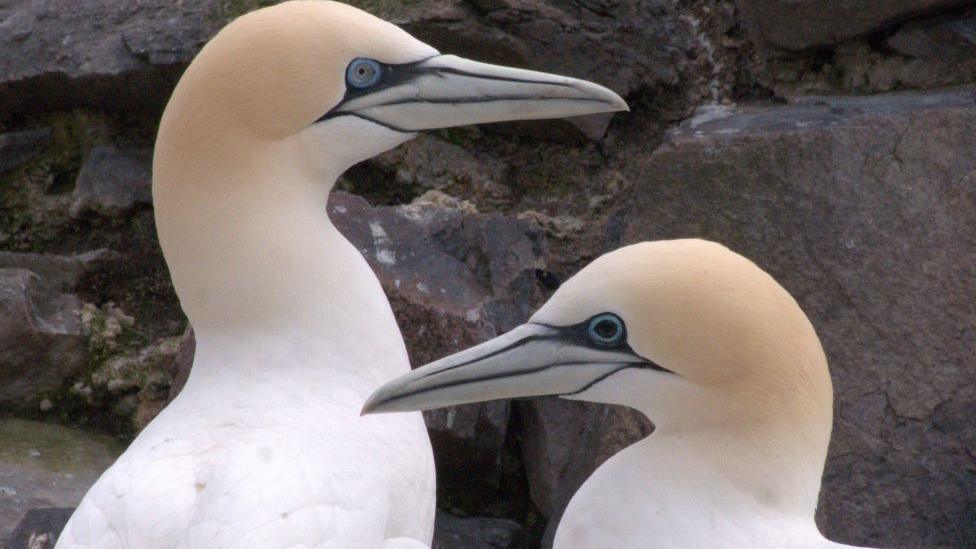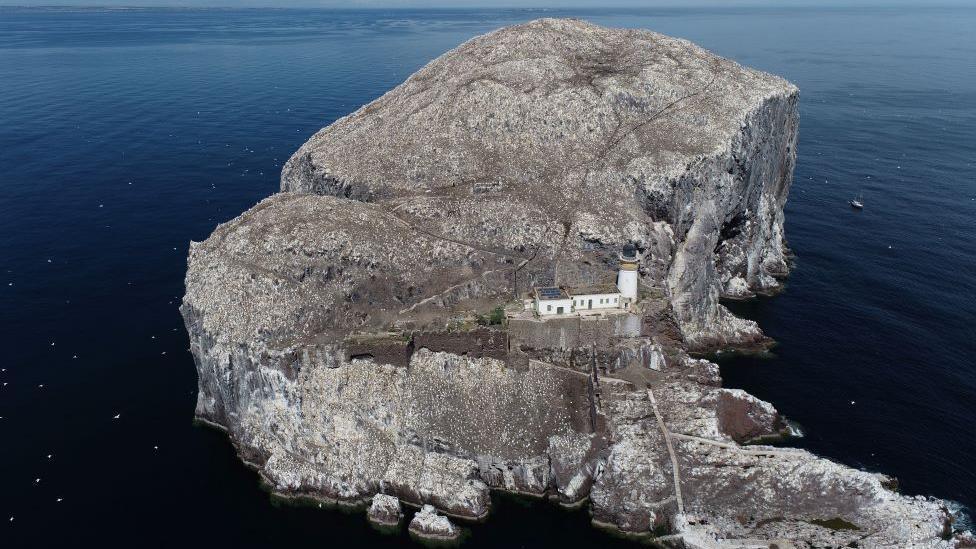Gannet colony down by quarter after bird flu

Gannets showing black eye, indicating exposure to avian flu
- Published
The world's largest colony of northern gannets has declined by at least a quarter since the last major count due to the effects of bird flu, scientists have said.
Researchers said the disease was confirmed on the Bass Rock in June 2022, at the height of the gannet breeding season.
Thousands of birds died on the island, which lies off the coast of North Berwick in the Firth of Forth.
Despite the decline, the 2023 breeding season has shown hopeful signs of recovery.

The Bass Rock gannet population has declined since 2014
Researchers, using imagery collected by a state-of-the-art drone and traditional counting methods, found the Bass Rock had reduced by 25% to 30% since the last major count in 2014.
A colony count of the birds in June revealed that the gannet population had decreased from 75,000 sites to around 55,000 sites.
A 'site' in the colony is an area being occupied by a single bird or a pair of birds.
Yet there are hopeful signs of recovery, with no evidence of widespread deaths during the 2023 summer breeding season.
Earlier this year, research suggested there were signs of recovery after the bird flu outbreak in 2022.

Bass Rock is home to the world's largest colony of northern gannets
The research is the result of a partnership between the Scottish Sea Bird Centre, the University of Edinburgh's School of Geosciences and the UK Centre for Ecology and Hydrology.
Recent advances in technology have brought new opportunities to better understand the effect of bird flu on the colony.
The research this year also trialed machine learning, being lead by the University of Edinburgh's Airborne Research and Innovation Facility.
Dr Amy Tyndall and Tom Wade from the University of Edinburgh said they were "delighted" with the data collected on the colony, which was of a quality of data that "surpassed our expectations".
Emily Burton a conservation officer at the Scottish Seabird Centre, said it was "reassuring" to see signs of recovery after avian flu.
She said sea birds were affected by a range of pressures including the impact of climate change, invasive species, exploitation of the marine environment and pollution.
Ms Burton said that "without urgent action, some of our most iconic seabirds could be extinct within 30 years."